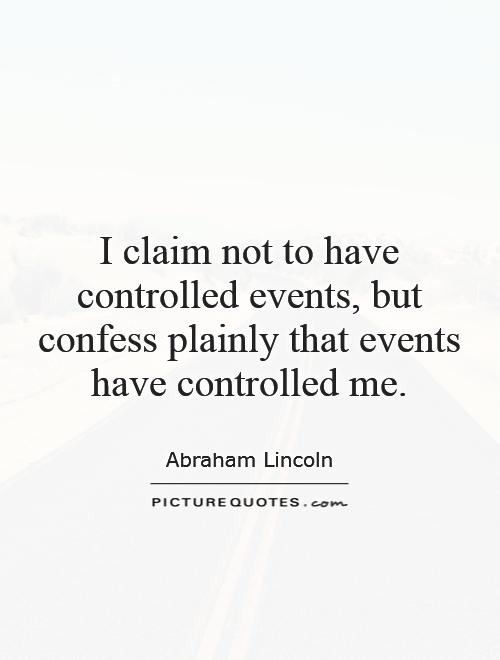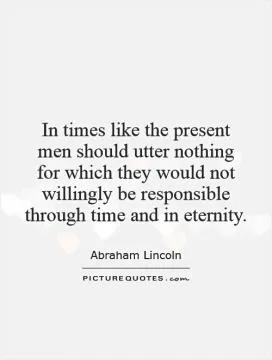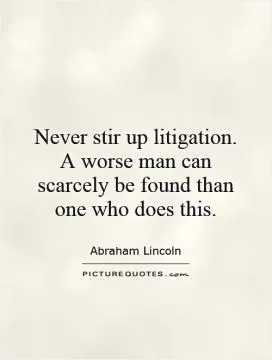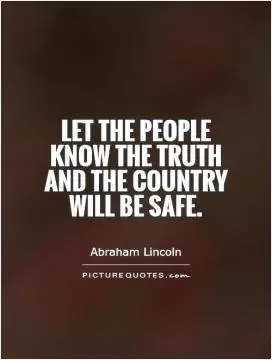I claim not to have controlled events, but confess plainly that events have controlled me

I claim not to have controlled events, but confess plainly that events have controlled me
Abraham Lincoln, the 16th President of the United States, is often regarded as one of the greatest leaders in American history. His presidency was marked by the Civil War, a defining moment in the nation's history that tested the very fabric of the United States. Lincoln's quote, "I claim not to have controlled events, but confess plainly that events have controlled me," speaks to his humility and recognition of the forces at play during his time in office.Lincoln's presidency was marked by a series of events that were beyond his control. The outbreak of the Civil War, the Emancipation Proclamation, and the passage of the 13th Amendment were all significant moments that shaped his legacy. Lincoln understood that he was not the master of these events, but rather a servant to the circumstances that surrounded him.
The Civil War, in particular, was a monumental event that tested Lincoln's leadership abilities. As the nation was torn apart by conflict, Lincoln was faced with the daunting task of preserving the Union and ending the institution of slavery. His decision to issue the Emancipation Proclamation, which declared all slaves in Confederate-held territory to be free, was a bold move that forever changed the course of American history. Lincoln recognized that the war itself was a force beyond his control, but he also understood the importance of taking decisive action in the face of adversity.
Similarly, the passage of the 13th Amendment, which abolished slavery in the United States, was a pivotal moment in Lincoln's presidency. Despite facing opposition from both sides of the political spectrum, Lincoln remained steadfast in his commitment to ending slavery once and for all. The events of the time demanded bold action, and Lincoln rose to the occasion, guiding the nation through one of its darkest hours.












 Friendship Quotes
Friendship Quotes Love Quotes
Love Quotes Life Quotes
Life Quotes Funny Quotes
Funny Quotes Motivational Quotes
Motivational Quotes Inspirational Quotes
Inspirational Quotes